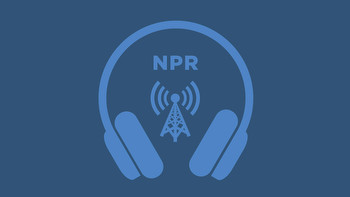As online gambling expands, so do concerns about addictions

Connecting state and local government leaders
|
Mobile sports betting is live and legal in 37 states and Washington, D.C. Online casino games are legal in 7 states. Those numbers could grow in 2024.
Delaware became the 28th state last week to offer online sports betting. North Carolina is not far behind—it hopes to launch its mobile sports betting operations in time for March Madness.
Since the U.S. Supreme Court overturned a near total prohibition on sports betting in 2018, it is live and legal in 37 states and Washington, D.C. And over the coming year, a handful more will consider joining a majority of states in legalizing online gambling, be it mobile sports betting or online casinos.
Of course, it is not certain any of these efforts will be successful. While eight states considered the issue last year, only a measure in Vermont to allow online sports betting passed. While many states have legalized sports betting to bolster revenues over the past five years, concerns about gambling addictions have remained.
In blocking a bill that would have allowed mobile sports betting in Hawaii, state Rep. Daniel Holt told the Associated Press that the $7 million in revenue the state could gain "may not be worth putting our communities at risk."
Most states are weighing whether or not to legalize online sports betting.
Two bills, for example, were filed last week in the Missouri Legislature to legalize sports betting. An effort to get online sports betting on the ballot is underway in California, where the state constitution would have to be amended before it could be legalized. And Mississippi is also studying the issue. A state task force released a study last month that estimated online sports betting could raise between $7.5 million to $11.7 million a year in tax revenue for the state. The task force, though, also raised concerns about worsening gambling addiction and taking money away from brick-and-mortar casinos.
The only state that seems certain to take up the issue of legalizing online casino games is Maryland, said Andrea Jimenez, a policy analyst for the National Conference of State Legislatures. The sponsor of a measure to legalize online casinos that failed last year said that he plans to introduce legislation again during the 2024 session.
Only six states offer internet casino gambling: New Jersey, Connecticut, Delaware, Pennsylvania, Michigan and West Virginia, according to the Associated Press. In addition, Rhode Island passed an online casino bill last year that is expected to go into effect this spring.
However, according to industry experts, a few more could take up the issue. Legislatures in New York and Illinois are likely to consider allowing online casinos, said Martin Lycka, a senior vice president for the Entain Foundation U.S., an online gaming advocacy group. Lycka also predicted that along with Missouri, Georgia and Minnesota will consider legalizing sports betting.
However, “the pace has definitely slowed,” said Keith Whyte, executive director of the National Council on Problem Gambling. Concerns that online betting will hurt those with gambling addictions stalled many state proposals last year, he said.
As mobile sports betting has become more widely available, some initial studies have indicated that its prevalence is impacting young people in particular. A meta-analysis conducted by professors at the University of Buffalo found that 1 out of 10 college students is a pathological gambler, which is far higher than the 2-5% of the U.S. general population estimated to have a gambling problem. A report by Rutgers University similarly found that younger men aged 18 to 24 were at a high risk for problem gambling.
Last February, New Jersey began partnering with online wagering companies to use data to identify people who may have gambling problems. Under the initiative, a gambler exhibiting warning signs is approached “using various circumstance-dependent interventions,” such as alerting them that they may have a problem, informing them about responsible gambling features in online platforms and directing them to help.
States that have legalized sports betting or online casinos often set aside money for programs to help those struggling with a gambling addiction.
Vermont, which was the only state to approve online sports betting last year, will use $250,000 of the $10 million to $15 million in additional tax revenue it is expected to receive on addressing gambling problems. The Mississippi analysis noted that 10 states spend a portion of their sports betting revenue to combat gambling problems.
Some states take additional measures like barring the use of credit cards to limit how much people can risk losing.
But Whyte knows of no upcoming plans by states to adequately address the problem. He says states aren’t spending nearly enough to prevent or help with gambling addictions. People spent $54.9 billion on gaming sites last year, according to Forbes. But less than 0.1% in public dollars is being spent on addiction services.
Lycka, though, argued that without legalization bettors are more likely to gamble on illegal offshore platforms that “lure people with unrestricted gambling and encourage heavy gambling.”






























